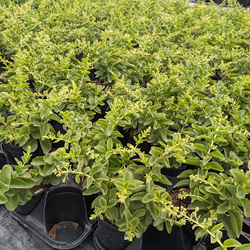 North Shore Plant Club
North Shore Plant Club
- Shop For Plants
- Search Plants
- Resources for Gardeners
- Color Wheel of Plants
- Interactive Landscapes
- Photos of Planters & Hanging Baskets
- September Photos from Our Community
- Botanic Gardens: Chicago & Beyond
- Local Nurseries
- Upcoming Plant Events
- Articles about Plants & Gardening
- Chicagoland Garden Calendar
- Explaining Plant Container Sizes
- Thrillers, Fillers & Spillers
- Join Free!
- Mundelein
Stonecrop (Sedum)
|
|
| Deciduous Perennial in the Crassulaceae Family | |
About StonecropsSedum is an overachiever... It thrives on neglect, laughs at drought, and blooms like it’s got something to prove. Bees adore it, deer ignore it, and it turns fall into a floral fireworks show. Plant sedum -- your future self will thank you! “Sedum” refers to an extremely diversified group of plants that has one thing in common: all sedum leaves are succulent, meaning they store water in their leaves. This gives them a plump, shiny look that provides a unique contrast in the garden, in planters, or along stone walls and walkways. The genus can be loosely split into three groups: upright (commonly called Border Sedums) and low-growing Creeping and Trailing Sedums.
There’s a moment in the garden when most plants have died back and things start to look a bit bleak, usually right around Halloween. This is Border Sedum’s finest hour. These Sedums begin blooming in August and certainly hold their own during the peak of any late-summer garden, but these plants can withstand very cold temps and look good doing it, which makes them an amazing addition on those dark November days.
Low-growing Creeping and Trailing varieties of Sedums come in a huge array of shapes, sizes, and growing habits; some spread slowly, some are quite invasive, and some fit cozily into any little nook or crevice they can find and stay there quite happily. Most low-growing sedums do bloom, though some varieties have relatively muted blooms and are better known for their striking leaf shapes, colors, and designs. |
|
Pros
|
|
Cons
|
|
Plant Data | |
| Mature Size | 7 - 12 inches tall. 12 - 24 inches wide. |
| Sun Exposure | Partial Shade - Full Sun |
| Moisture Tolerance | Sedum don't require a lot of water and will develop their best colors if they get at least 6 hours of sunlight per day. They won't grow well in heavy, mucky, or high clay soils. |
| Zones | 4a - 9b (Usually hardy to -30° F) |
| Tags | Attracts Birds, Attracts Butterflies, Attracts Hummingbirds, Container, Deciduous, Deer Resistant, Drought Tolerant, Dry, Extended Bloom Time, Fall Color, Filler, Full Sun, Good for Beginners, Good for Borders, Good for Butterfly Garden, Good for Cottage Garden, Good for Cut Flowers, Good for Dried Flowers, Good for Rock Garden, Groundcover, Low Maintenance, Most Popular, Non-Allergenic, Normal Soil, Partial Shade, Partial Sun, Perennial, Popular For Fall, Rabbit Resistant, Showy Flowers, Succulent, Tolerant of Hot Dry Site, Tolerant of Moist Soil, Well-Drained Soil, Winter Interest |
Rankings |
|
More Info from Experts |
|
Commonly Planted with...Asters, Chrysanthemums, Blue Fescue, Dianthus, Hostas, Purple Coneflower. |
|
Photos of This with...Rainbow Knock Out Shrub Rose |
|

























 Siebold Stonecrop
Siebold Stonecrop




















